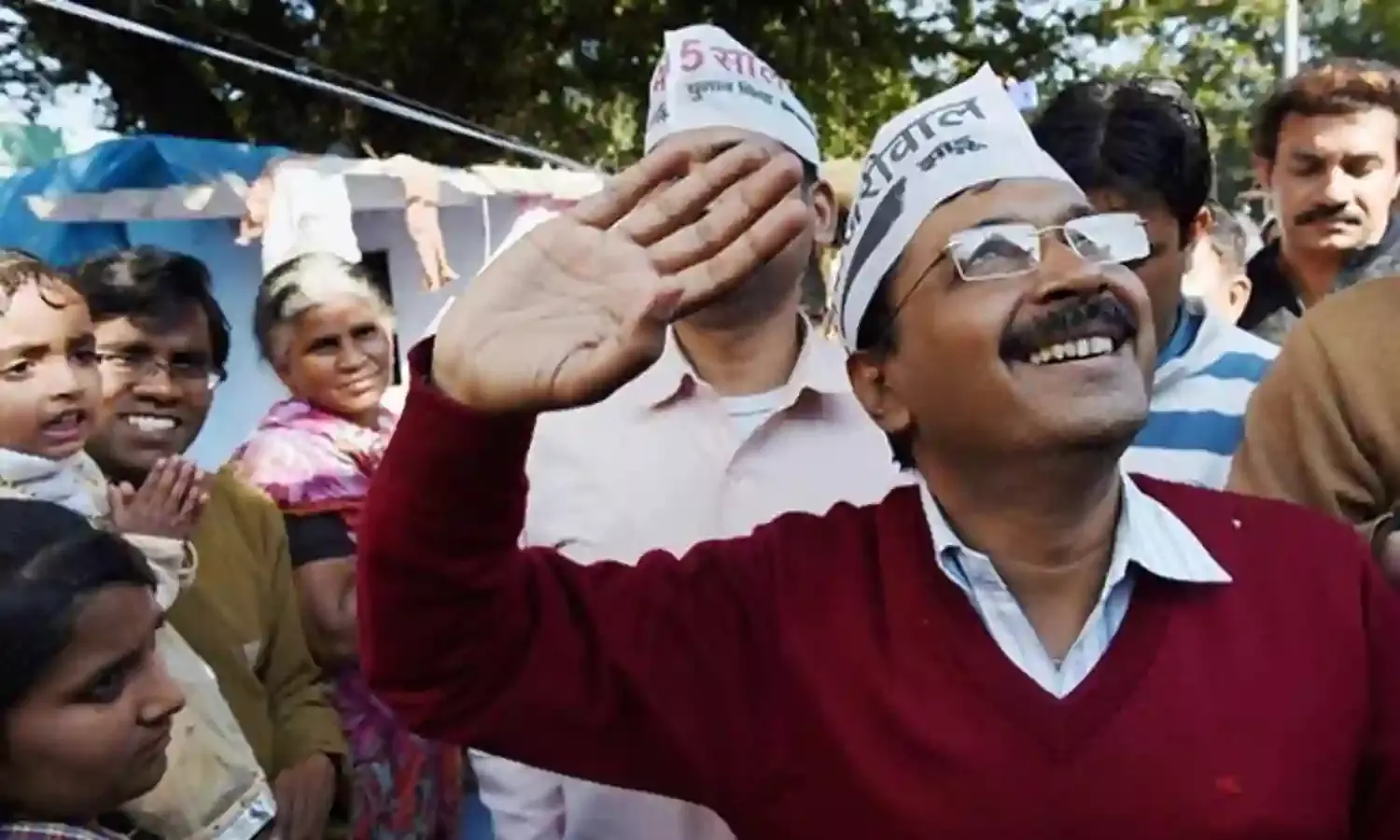
We all know that the AAP brand is associated with a development model. But the party’s trajectory is also getting linked to a special brand of political melodrama: the clean sweep. Alternative politics demands that existing electoral behaviour must be swept away. The Aam Aadmi Party symbol, the broom, has been perfectly chosen to sell this narrative. The uncanny bit is how a clean sweep with the humble broom is beginning also to characterize the party’s electoral fortunes.
In Delhi and Punjab, on its first sortie, AAP started out with a respectable number of seats, but not a clear majority. This was a satisfactory outcome for a novice in the game. The general advice was: Let AAP make a mark in the Opposition, learn the ropes and bide its time for the second attempt. But in the current political and media environment, where only those who hold official posts hog the limelight and face the public, an opposition party could easily sink back into oblivion. This is what happened to AAP earlier in Punjab.
What did its MLAs do? How did they fight for their voters outside and inside the Assembly? Could AAP hold its flock together and make an impact? Media reports out of Punjab never covered this story. News did not filter out of Punjab so that AAP supporters in other States could formulate strategies to contest their own elections, to decide whether to field a few candidates or to go all out for an absolute majority in their Assemblies.
What succeeded in Delhi and Punjab, however, were good long jump tactics. “Reculer pour mieux sauter” as the French would say - retreat to build up steam and take the hurdle at one go. The technique succeeded spectacularly in both States. All records were broken and the party has sailed in with unassailable support. A respectable introduction, a period of silent preparation and then outright victory: the route to power has been identical in Punjab as in Delhi. It may well become AAP’s chosen path all over the country.
While running a government, however, a clean sweep has drawbacks too. Political life without a strong opposition is not an unmixed blessing. Of course, in the absence of legislative criticism, the newly elected party can instantaneously erect the framework of a fresh polity and dismantle and root out corrupt intermediaries inside offices and ministries. Promises made in the manifesto, which have been endorsed so decisively by voters, can be rolled out without delay. New norms of public service, sans partiality and VIP arrogance, can become embedded in officialdom. These are the obvious and highly desirable outcomes of AAP’s brute majority in Punjab.
But an effective Opposition also has a legitimate role in any legislature. Under our first-past-the-post election system, very rarely is a governing party voted in by more than half the voters. This did happen to AAP in Delhi. In Punjab, though, the share of votes polled by the party is still below the halfway mark. A sizeable number of persons who did not vote for AAP will have no legislative representation now.
Chief Minister Mann is absolutely right to make his MLAs the eyes and ears of all voters of the State. Nonetheless, there will be a “representation gap” in the Assembly, which cannot be totally closed by governing party MLAs alone. The conventions of our Cabinet system preclude open criticism of party policy by its own legislators within the Assembly, the idea being that the Cabinet as a whole must present a “united front”, since it can stay in power only if it enjoys majority legislative support. The office of the Whip is emblematic of this situation.
It inevitably means that the party’s policies can be honestly discussed only behind closed doors in the party’s own conclaves. MLAs may not even be consulted on many policies and they do not have any veto power; Cabinet ministers alone need to clear what is tabled in the Assembly. A strong Opposition is thus essential to trigger the necessary open, free and frank debate. Confrontations among legislators are and must be politically motivated and no-holds-barred, so that every possible implication of a proposed policy is publicly exposed.
This can only be done by a member of the Opposition. The country has seen veteran politicians like Vajpayee who have made phenomenal legislative contributions, while serving many years in the Opposition. A clean sweep means that there is no scope for public sparring, for multi-party legislative committees, for creative dialogue.
Aam Aadmi Party debates in the Delhi Assembly have suffered from the lack of good opponents. Their intervention would have given voice to those who have not voted for AAP, it would have presented the other side of many programs, it would have disclosed the hidden pitfalls of proposed schemes. Above all, it would have given AAP itself an opportunity to reveal plans and intentions.
The Delhi government’s case for free bus travel for women, for power and water subsidies, for the doorstep delivery of rations and public services were all only presented through the party’s own press releases. The narrative could have had a much greater impact if the schemes had been criticized and discussed: not only by isolated statements and articles in the press and elsewhere but through the cut and thrust of debates in which points were raised and answered, suggestions made and conceded or rejected and the motives behind decisions clearly brought before the public.
Misconceptions about “freebies” and “handouts” could then have been removed. And the direct public consultations which have become the hallmark of AAP governance could have been supplemented with the intelligent views of the elected representatives of other parties.
This is what AAP missed when it got a clean sweep in Delhi. And there might be no way of avoiding it in Punjab.

